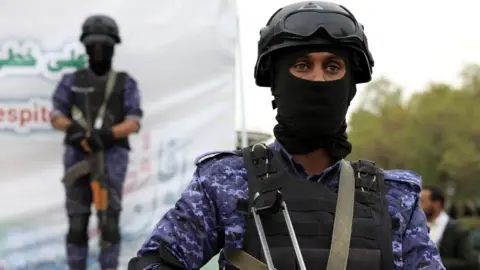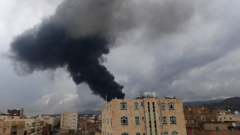In a surprising turn of events, US Defense Secretary Pete Hegseth has come under fire for sharing critical details about ongoing US air strikes in Yemen through a private chat on the secure messaging app, Signal. As reported by CBS and other news outlets, Hegseth relayed messages that included flight schedules for military F/A-18 Hornets participating in strikes targeting Houthi forces. The chat group was reportedly comprised of Hegseth's immediate family members, including his wife, brother, and personal legal advisor.
This incident follows the revelation of another Signal group chat that previously discussed sensitive military operations. Notably, the White House has maintained that no classified information was included in these communications. Critics, however, argue that sharing such operational information with individuals who are not official military personnel poses risks to US forces and operations in the region.
The second Signal chat, named “Defense | Team Huddle,” was reportedly initiated by Hegseth himself. The situation is compounded by ongoing scrutiny of Hegseth’s role within the Pentagon, particularly as the department navigates an $892 billion budget amid a backdrop of accusations regarding unauthorized information leakage. The recent dismissal of three senior officials by Hegseth further highlights the ongoing turmoil within the Pentagon, described by former spokesperson John Ullyot as representative of a chaotic environment.
Washington's military actions in Yemen stem from a response to the Houthi's aggressive targeting of commercial vessels in the critical maritime pathway of the Red Sea. As tensions rise, the Houthis have faced severe backlash from US air strikes, including a recent attack that resulted in significant casualties and was labeled a "war crime" by Houthi leadership.
In the wake of these developments, the Pentagon's communication practices are under scrutiny and the implications for military operational security remain a matter of significant concern. While official statements assert that no classified details were compromised, the intersection between personal and professional communications in the realm of national security is increasingly being questioned.
This incident follows the revelation of another Signal group chat that previously discussed sensitive military operations. Notably, the White House has maintained that no classified information was included in these communications. Critics, however, argue that sharing such operational information with individuals who are not official military personnel poses risks to US forces and operations in the region.
The second Signal chat, named “Defense | Team Huddle,” was reportedly initiated by Hegseth himself. The situation is compounded by ongoing scrutiny of Hegseth’s role within the Pentagon, particularly as the department navigates an $892 billion budget amid a backdrop of accusations regarding unauthorized information leakage. The recent dismissal of three senior officials by Hegseth further highlights the ongoing turmoil within the Pentagon, described by former spokesperson John Ullyot as representative of a chaotic environment.
Washington's military actions in Yemen stem from a response to the Houthi's aggressive targeting of commercial vessels in the critical maritime pathway of the Red Sea. As tensions rise, the Houthis have faced severe backlash from US air strikes, including a recent attack that resulted in significant casualties and was labeled a "war crime" by Houthi leadership.
In the wake of these developments, the Pentagon's communication practices are under scrutiny and the implications for military operational security remain a matter of significant concern. While official statements assert that no classified details were compromised, the intersection between personal and professional communications in the realm of national security is increasingly being questioned.


















